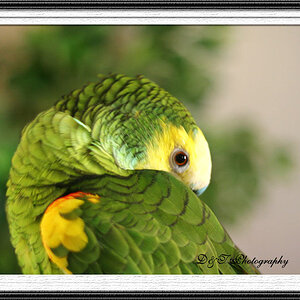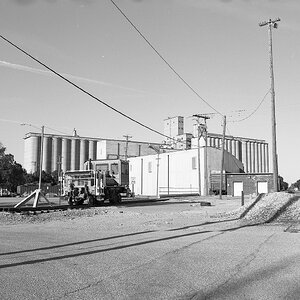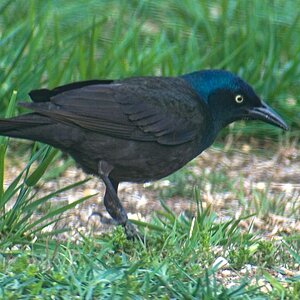Navigation
Install the app
How to install the app on iOS
Follow along with the video below to see how to install our site as a web app on your home screen.

Note: This feature currently requires accessing the site using the built-in Safari browser.
More options
You are using an out of date browser. It may not display this or other websites correctly.
You should upgrade or use an alternative browser.
You should upgrade or use an alternative browser.
Really good explanation for people starting out with photography
- Thread starter junni
- Start date
-
- Tags
- beginners starting out
- Joined
- Dec 9, 2006
- Messages
- 21,468
- Reaction score
- 12,464
- Location
- Maryland
- Can others edit my Photos
- Photos OK to edit
I think your idea is good, but as it has already been mentioned, some of your material goes beyond the basics. Fix the technical errors and work on the translation, and post the corrected version.
junni
TPF Noob!
- Joined
- Aug 2, 2016
- Messages
- 19
- Reaction score
- 0
- Can others edit my Photos
- Photos NOT OK to edit
Thanks for your support. I already corrected some things, and updated the old post. I will correct more when i find it incorrect. I will not correct things I'm confident is correct without a discussion that convinces me that i'm wrong.I think your idea is good, but as it has already been mentioned, some of your material goes beyond the basics. Fix the technical errors and work on the translation, and post the corrected version.
junni
TPF Noob!
- Joined
- Aug 2, 2016
- Messages
- 19
- Reaction score
- 0
- Can others edit my Photos
- Photos NOT OK to edit
Throwing correct concise information is exactly what newbies need. Photography is not some simple little process we can throw a few simple analogies at and have it mean anything. If it was, anybody and everybody would master the craft in a day or two. The art of photography is a complex process based on physics that needs to be understood correctly from the very beginning. Doing so eliminates many beginner issues.I'm sure the
I think this does a far better job. Digital Photography Tutorials
Plus it's not spam.
I'm sure you are right in that, but that site is quite heavy. I have collected the most central aspects shortly, and your referenced site may not be the best one to throw at someone that just has started. What i have tried to collect is the things i wish someone would have told me when i started. It may not fit all, but if someone sees it as useful i'm happy. I would also be greatful for replies of faults in the information
Several misleading errors have already been pointed out in the article so I will not address them. My analogy is simple.....There is no reason to reinvent the wheel, it's already been done and works just fine.
I have familarized myself with the site Digital Photography Tutorials, and I'm really surprised about how well it explains things. Its very pedagogically designed, so yeah for most people this may be a really good way to start. Any suggestions on which direction i should take my site then. I want to have a spare time to project to work with, and i'm interested in photography, so thats the reason i started doing the tutorial.
Yes I do have a suggestion, forget the blog for now. It is obvious from your original attempt that you have a rudimentary understating of photography. For now I would suggest you learn photography first. Truly learn the photographic art. Once you have a very good working understanding of photography then you can consider a blog that will actually have value to others.
Understand that by learn photography, I do not mean that the acquisition of knowledge comes simply from reading. Pickup a camera and learn everything you possibly can. Books are great for a start, but books have no experience, just pages with print. Experience is the best teacher, lots of experience. Not just the basics. Photography is about light, not sensors. Study and learn light. Learn the physics of photography and be able to put that learning to real use. Once you have mastered the mechanics you can apply them to the creative side.
"With only artistic skills one can take excellent pictures using auto." This is a false assumption. Artistic skills are not automatic. Auto mode takes a photo based on a predetermined algorithm. It has no brain, no imagination and has no ability to create. This is where photographic skills come in to play. You have to understand what it is the camera sees and then manipulate the camera via the various setting to get it to see what you see and want to record.
If you feel the need to write a blog at this point, then do what all good teachers do, write about something you know.
Understand that by learn photography, I do not mean that the acquisition of knowledge comes simply from reading. Pickup a camera and learn everything you possibly can. Books are great for a start, but books have no experience, just pages with print. Experience is the best teacher, lots of experience. Not just the basics. Photography is about light, not sensors. Study and learn light. Learn the physics of photography and be able to put that learning to real use. Once you have mastered the mechanics you can apply them to the creative side.
"With only artistic skills one can take excellent pictures using auto." This is a false assumption. Artistic skills are not automatic. Auto mode takes a photo based on a predetermined algorithm. It has no brain, no imagination and has no ability to create. This is where photographic skills come in to play. You have to understand what it is the camera sees and then manipulate the camera via the various setting to get it to see what you see and want to record.
If you feel the need to write a blog at this point, then do what all good teachers do, write about something you know.
Ysarex
Been spending a lot of time on here!
- Joined
- Nov 27, 2011
- Messages
- 7,139
- Reaction score
- 3,698
- Location
- St. Louis
- Can others edit my Photos
- Photos OK to edit
Throwing correct concise information is exactly what newbies need. Photography is not some simple little process we can throw a few simple analogies at and have it mean anything. If it was, anybody and everybody would master the craft in a day or two. The art of photography is a complex process based on physics that needs to be understood correctly from the very beginning. Doing so eliminates many beginner issues.I'm sure the
I think this does a far better job. Digital Photography Tutorials
Plus it's not spam.
I'm sure you are right in that, but that site is quite heavy. I have collected the most central aspects shortly, and your referenced site may not be the best one to throw at someone that just has started. What i have tried to collect is the things i wish someone would have told me when i started. It may not fit all, but if someone sees it as useful i'm happy. I would also be greatful for replies of faults in the information
Several misleading errors have already been pointed out in the article so I will not address them. My analogy is simple.....There is no reason to reinvent the wheel, it's already been done and works just fine.
I have familarized myself with the site Digital Photography Tutorials, and I'm really surprised about how well it explains things. Its very pedagogically designed, so yeah for most people this may be a really good way to start. Any suggestions on which direction i should take my site then. I want to have a spare time to project to work with, and i'm interested in photography, so thats the reason i started doing the tutorial.
That's one of the best sites on the Internet and I also reference it regularly. It is however terse and does have inaccuracies. There are errors in the DOF explanation and although you were incorrect in what you tried to present about ISO you were at least pointed in the right direction whereas this site has it all wrong.
Joe
junni
TPF Noob!
- Joined
- Aug 2, 2016
- Messages
- 19
- Reaction score
- 0
- Can others edit my Photos
- Photos NOT OK to edit
Yes I do have a suggestion, forget the blog for now. It is obvious from your original attempt that you have a rudimentary understating of photography. For now I would suggest you learn photography first. Truly learn the photographic art. Once you have a very good working understanding of photography then you can consider a blog that will actually have value to others.
Understand that by learn photography, I do not mean that the acquisition of knowledge comes simply from reading. Pickup a camera and learn everything you possibly can. Books are great for a start, but books have no experience, just pages with print. Experience is the best teacher, lots of experience. Not just the basics. Photography is about light, not sensors. Study and learn light. Learn the physics of photography and be able to put that learning to real use. Once you have mastered the mechanics you can apply them to the creative side.
"With only artistic skills one can take excellent pictures using auto." This is a false assumption. Artistic skills are not automatic. Auto mode takes a photo based on a predetermined algorithm. It has no brain, no imagination and has no ability to create. This is where photographic skills come in to play. You have to understand what it is the camera sees and then manipulate the camera via the various setting to get it to see what you see and want to record.
If you feel the need to write a blog at this point, then do what all good teachers do, write about something you know.
Altrough i agree i have rudimentary understanding about photography as a whole, i still consider i have a good understanding about the physics relating optics and geometry. I have been studying optics and i have done proved correct calculations on lenses. I'm still confident the model i explained "with wrong photography terms" still is completely correct.
Designer
Been spending a lot of time on here!
- Joined
- Apr 13, 2012
- Messages
- 18,505
- Reaction score
- 4,853
- Location
- Iowa
- Can others edit my Photos
- Photos OK to edit
I think overall that you have lost sight of who your readership is. Remember; beginners will not understand nor will they care about the finer points of optics. All they want to do is take photographs.
Simple it up, use correct terminology, avoid jargon, use analogies only if they help the average beginner to understand the concepts, keep the concepts very simple, forget the optics lesson, and relate each aspect of your tutorial to the camera and the user.
Simple it up, use correct terminology, avoid jargon, use analogies only if they help the average beginner to understand the concepts, keep the concepts very simple, forget the optics lesson, and relate each aspect of your tutorial to the camera and the user.
junni
TPF Noob!
- Joined
- Aug 2, 2016
- Messages
- 19
- Reaction score
- 0
- Can others edit my Photos
- Photos NOT OK to edit
I think overall that you have lost sight of who your readership is. Remember; beginners will not understand nor will they care about the finer points of optics. All they want to do is take photographs.
Simple it up, use correct terminology, avoid jargon, use analogies only if they help the average beginner to understand the concepts, keep the concepts very simple, forget the optics lesson, and relate each aspect of your tutorial to the camera and the user.
Thanks for those suggestions, i think i should do that, or should i rename the article "the optical concepts of photography explained for nerds"
Designer
Been spending a lot of time on here!
- Joined
- Apr 13, 2012
- Messages
- 18,505
- Reaction score
- 4,853
- Location
- Iowa
- Can others edit my Photos
- Photos OK to edit
If your intent is to delve into the optics of photography, then sure, rename it, but I don't think the term "nerds" is going to help with readership numbers, and optics is not for beginners, either...should i rename the article "the optical concepts of photography explained for nerds"
Go ahead and write your article, and post it up here. Don't delete the original, just add it here or begin a new thread.
vintagesnaps
Been spending a lot of time on here!
- Joined
- Jan 13, 2013
- Messages
- 9,119
- Reaction score
- 3,109
- Location
- US
- Can others edit my Photos
- Photos NOT OK to edit
I quit trying to read it because it's unclear as written; it needs to be translated properly for an English speaking audience.
What I did read didn't make sense as an explanation of photography for beginner camera users (or for photographers in general). The description of ISO for example seemed inaccurate and showed a lack of knowing and understanding (which I believe has already been mentioned). It seems like you need to take time to develop your skills and understanding of photography first.
If you're discussing optics it seems like you'd need to do research and test out your theories, etc. Maybe doing your own blog would be an option.
What I did read didn't make sense as an explanation of photography for beginner camera users (or for photographers in general). The description of ISO for example seemed inaccurate and showed a lack of knowing and understanding (which I believe has already been mentioned). It seems like you need to take time to develop your skills and understanding of photography first.
If you're discussing optics it seems like you'd need to do research and test out your theories, etc. Maybe doing your own blog would be an option.
- Joined
- Aug 15, 2013
- Messages
- 13,695
- Reaction score
- 3,369
- Location
- SE Michigan
- Can others edit my Photos
- Photos OK to edit
Truthfully I was going to start a webpage for beginners.
Essentially teaching how to go from AUTO to a Scene mode, and the differences,
and then to a Program Mode, and differences, all the way to Manual. With examples and learning along the way.
But I'm too busy, never got past that concept in my head.
Essentially teaching how to go from AUTO to a Scene mode, and the differences,
and then to a Program Mode, and differences, all the way to Manual. With examples and learning along the way.
But I'm too busy, never got past that concept in my head.
Vtec44
Been spending a lot of time on here!
- Joined
- Nov 13, 2008
- Messages
- 3,501
- Reaction score
- 1,917
- Location
- So Cal
- Website
- www.jamestangphotography.com
- Can others edit my Photos
- Photos NOT OK to edit
This is a perfect example of over complicating things without real understanding of the practical applications. LOL
junni
TPF Noob!
- Joined
- Aug 2, 2016
- Messages
- 19
- Reaction score
- 0
- Can others edit my Photos
- Photos NOT OK to edit
Truthfully I was going to start a webpage for beginners.
Essentially teaching how to go from AUTO to a Scene mode, and the differences,
and then to a Program Mode, and differences, all the way to Manual. With examples and learning along the way.
But I'm too busy, never got past that concept in my head.
Start simply by writing down the ideas in a text editor. Then when you have a little time, create a website with some simple template. Then when you have more time, focus on the website look and feel and make that your own.
junni
TPF Noob!
- Joined
- Aug 2, 2016
- Messages
- 19
- Reaction score
- 0
- Can others edit my Photos
- Photos NOT OK to edit
This was not intended as a guide how to use your camera, but as an explanation of why things are like they are. People tend to think differently, but for me the knowing why is very important, becaus i tend to translate that into new knowledge. For me it makes it easier to learn about related things, when i can see the red line, and i think there are other thinking this wayThis is a perfect example of over complicating things without real understanding of the practical applications. LOL
Similar threads
- Replies
- 12
- Views
- 879


![[No title]](/data/xfmg/thumbnail/35/35264-5ade32b7036391926536661aeb7491c3.jpg?1619736969)

![[No title]](/data/xfmg/thumbnail/42/42468-f720ff996eb9cc6554c0019901223156.jpg?1619740193)

![[No title]](/data/xfmg/thumbnail/35/35872-12704b8c65e1c009d7089ccba367abb6.jpg?1619737198)



![[No title]](/data/xfmg/thumbnail/36/36394-700ff78d7b45c663863e641a9bcf1fe1.jpg?1619737548)

![[No title]](/data/xfmg/thumbnail/41/41423-156eb6e5a056cd1cbcf60e12a03f9d56.jpg?1619739809)